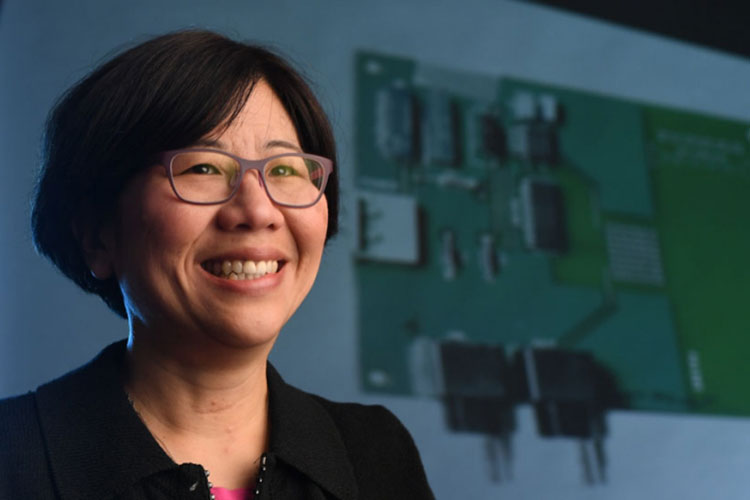A step toward faster, more accurate breast cancer detection

Over the course of her lifetime, a woman has a one in eight chance of developing breast cancer. The earlier the cancer is detected, the more likely bad luck can turn to good.
Now new technology being developed by UC Berkeley engineers could dramatically improve the speed and accuracy of early breast cancer detection through the use of microfluidics.
Mechanical engineering professor Lydia Sohn and her research group have devised a totally new cell inspection and surveillance technology that is highly sensitive, quick and, above all, fully quantitative. The new technology, called mechano-node-pore sensing, or mechano-NPS, has the potential to eliminate the diagnostic wiggle room that comes with visual cancer diagnosis.
The assay detects cancer using microfluidics, an inexpensive mechanical engineering process that utilizes small volumes of liquids flowing under pressure through extremely small tubes, or micropores.
Mechano-NPS works by measuring the softness or stiffness of isolated breast cells. In 2016, Sohn and graduate student Junghyun Kim discovered that cancerous breast cells travel through the constricted channels of a micropore a little more quickly than non-malignant cells because they are more pliable, or elastic. They have since shown that the speed with which cells make it to the finish line can be a very reliable indicator of whether they are cancerous or not.
“This was something totally new and exciting,” Sohn says. “At first I couldn’t believe that we found such a fundamental trait that distinguishes the cancer cells from normal cells.”
Sohn is working with experts at City of Hope hospital and research center in Los Angeles to refine the mechano-node-pore sensing capability for early breast cancer diagnosis or monitoring.
She and her collaborators recently described these findings in a paper published in the journal Microsystems and Nanoengineering.
“This is a very real thing to me,” says Sohn. ”My mother had lung cancer. We are lucky — it was caught early. I hope I can help women so if they do get breast cancer at least it can be detected in its very earliest stage.”
